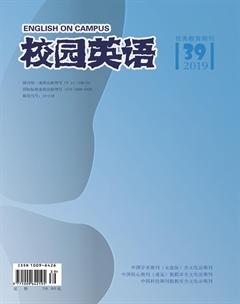Legal Regulation on Air Passengers“Blacklist”in China
【Abstract】China is trying to make the“blacklist”of air passengers and legal provisions are not perfect. This paper analyzes the situation of the“blacklist”of air passengers in China, the application abroad, and finally puts forward suggestions for improvement.
【Key words】“blacklist”; Legal analysis; Legal regulation
【作者簡介】石运光,山东交通学院。
In China, air passengers listed on the list of banned flights and refused to sell airline tickets, are commonly known as the “blacklist”. The“blacklist”of air passengers has occurred repeatedly in China, and the main body of the establishment of the“blacklist”is an airline, and the standards formulated by it have a certain degree of arbitrariness, so it is more necessary to regulate from the legal point of view.
1.A Legal Analysis of the“blacklist”System for Air Passengers
(1)Application of international treaties and international commercial practice
As a founding member of the International Civil Aviation Organization, the Convention on International Civil Aviation is generally applied on a priority basis. Tthe Security Manual for the Prevention of Unlawful Interference with Civil Aviation states: "The operator must be authorized to refuse to transport persons considered to be a potential threat to the aircraft. Any person who refuses to be screened before boarding or entering the aircraft must be refused boarding.
(2)Legal application of relevant domestic legislation
As a public service enterprise, aviation enterprises can not refuse the public's requirements. This is a statutory compulsory contracting obligation. Although the Contract Law stipulates the exemption from compulsory contracting obligations in specific circumstances, the conditions for exemption are very harsh. Only when the passenger and shipper's requirements are unreasonable, the air carrier's compulsory contracting obligations are exempted.
2.Provisions on the“blacklist”system for air passengers abroad.
(1)Status of legislation on“blacklist”for foreign air passengers. Before September 11, the Federal Bureau of Investigation of the United States established a “traffic ban” list of 16 people on the grounds that it "may pose a threat to transportation." After that, the Federal Aviation Administration of the United States handled the list.
(2)Characteristics of the“blacklist”of foreign air passengers. 1) The authority of the formulation agency. The U.S. formulation agency is the Federal Bureau of Investigation. Later it was handed over to the Federal Aviation Administration. The Transportation Security Bureau was eventually responsible. 2) The identification criteria are clear. The United States has clear aviation safety standards and developed corresponding legal documents for aviation safety. According to the aviation safety standards established in these laws, it is determined whether a person's behavior will cause harm to aviation safety. In the determination process, the proposed “no-fly personnel” will be listed first, and then the special government departments will strictly comply with the provisions of the Aviation Ordinance. 3)Rights of“blacklist”personne are strictly protected. The Canadian Federal Transportation Agency has strengthened cooperation with the Privacy Exclusive Committee and various airlines to accept the former's recommendations, strengthen the protection of privacy, and protect confidential information of blacklisted personnel.
3.Improving the Legal Regulation of the “Blacklist” System in China
China should make clear provisions on the“blacklist” system for air passengers by amending the Civil Aviation Law, and specifically specify the following elements:
(1)Standards for making“blacklists”shall be made legal
The criteria for the establishment of blacklists should be cautious and strict. The criteria for setting up standards should not be too broad. Otherwise, they will affect innocent people.
(2)Procedures for the establishment of the subject and evaluation of the“blacklist”of air passengers
In China, airlines can only be the Implementers of the“blacklist”of passengers and can not have the right to decide on the“blacklist”.
(3)To strengthen the mechanism for protecting the lawful rights and interests of persons on the “blacklist”
The blacklist should adhere to the principle of non-disclosure. The authority should establish an internal confidentiality system for the list information, and avoid the disclosure of private information such as the name, unit, and contact information of the blacklisted person.

